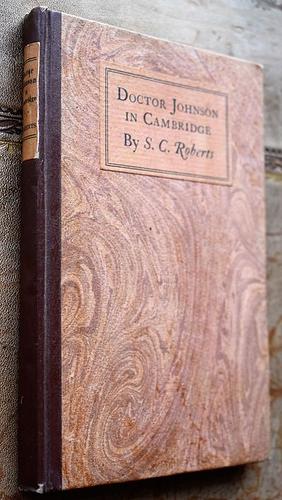I was extremely nervous. Clarissa may well be the last book I failed to finish and I remembered the quagmire that the book becomes after it’s initial burst of energy. That first reading was supported by the same group of people that read Evelina with me the first time, but even that support could not get me through that long stretch of tedium.
However, this time I knew what I was getting into. What’s more, I had a plan, to read the letters when they were written. As the book takes place over a whole year, this behemoth of a book would be split up evenly over twelve months. This meant that even as Clarissa was going nowhere slowly, I could enjoy other books.
It didn’t quite work out like that. The letter as a physical element is an important part of the book. Letters are forged, lost and held, so some come after others despite being written before them. Then there’s the fact that the letters aren’t paced evenly. During the few moments of the book when something is happening, there can be pages and pages and pages of letters, while at other times, there are hardly any.
This meant that there were times when I had to put down something compelling and plough through hours of Clarissa to keep on track. What’s more, given the size of my copy (the penguin single volume edition) and given the tininess of the writing (good thing I read it while I can still see the thing) each page of Clarissa was the same as a page-and-a-half, even two pages, of another book. This meant that twenty pages reading was closer to forty and the book felt even more interminable.
What’s more, the book felt like a millstone around my neck. There it sat, looming on my bedside table, for the best part of a year. The little blue ribbon which marked my place inching along. I’d be in the middle of something fun and engrossing and I’d have to return to Clarissa and slog. During my summer holiday, I had to take my kindle and read things on that because there was only room for one book in my suitcase, and that was Clarissa.
On the plus side, if there’d been a gap in letters and I hadn’t read the book for a while, it wasn’t hard to get back into the book to understand what was going on, because invariably, nothing was. There’s also the fact that sometimes the book is genuinely gripping, the characters deep and interesting and there are a few points in my notes where I wrote, ‘Am I enjoying this?’… those notes were often followed by a, ‘nope, dull again’.
What’s more, finishing the book is a let-down. Clarissa herself dies in September. She’s been leading up to it for some time, installing her custom-made coffin into her bedroom and writing goodbye notes. We get the return of her body to the family, her burial, the last wrangling over her last wishes and will. Then a pause. Then Lovelace’s comeuppance. Then a pause. Then a final wrap-up. It fizzles out, ending with the merest of whimpers and without any feeling of satisfaction. The book is ostensibly a tragedy but there’s no catharsis.
So, my experience of reading Clarissa was ultimately not a positive one and it’ll take wild buffalo to drag me into reading Sir Charles Grandison. Yet, I could appreciate the complexity of Richardson’s understanding of his characters, and can see how other writers took that and melded it into something more.. well.. enjoyable. But to people intrigued about reading for Clarissa for themselves, I’d advise them to leave it alone and just read Tom Jones again, that’s far more fun.












